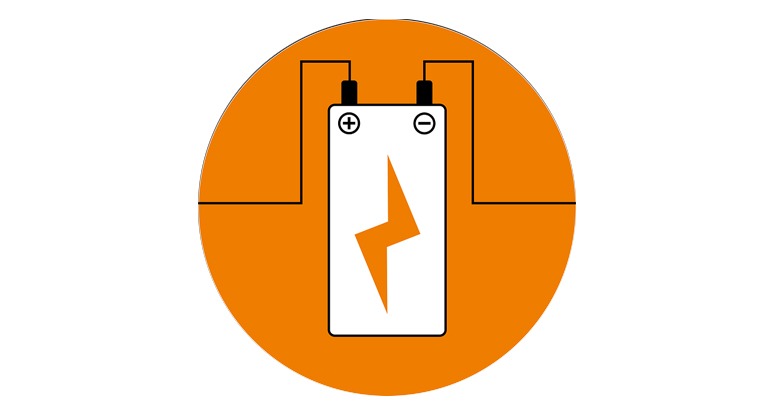UPS is an uninterruptible power supply which provides power back up once the power supply of the main electrical line is disrupted due to natural or man-made causes. A UPS instantly prevents the disruption of the internal power system of a business. The least it does to a machine is to allow it to be properly shut down during a power-cut. A UPS is generally used as a standby generator to provide and support telecom communication, electrical equipment, computer, and data centers so as to protect data loss and downtime cost. For the UPS, a battery happens to be the main aspect of the equipment and it’s absolutely essential to choose the right battery size for the smooth functioning of a UPS. However, it isn’t really easy for a non-technical person to know how to calculate the right battery size for the UPS. So here are a few tips for you that will help to calculate the right battery size for UPS :
Tips to Calculate the Right Battery Size for the UPS
1. Knowing the Basics
Before you decide to buy anything it’s important to know the basic principles to determine the right battery size for UPS. A little knowledge of all the elements will surely prove to be helpful. For example, the UPS power is called load, the runtime is the total time a UPS will be able to provide back-up for the equipment connected to it, the input is the voltage, and Ah is ampere hour, which is the measuring unit of the UPS battery capacity. These are required to measure the time, the size of the battery, and also the back up per hour of the UPS. The UPS also provides a certain amount of internal power back-up which gets lost in the whole process of wiring and connectivity reducing the overall capacity of the electronic device. The charger speed should also be considered while buying a UPS because charging capacity directly affects the functionality of the UPS. If the UPS does not get charged within the required time, the whole purpose of buying one gets invalidated.
2. The Battery Capacity
Almost all the lead acid dry batteries display the Ah rating of the battery in large fonts on the battery body. Ah, as discussed before, is the unit that measures the ampere supplied by the battery per hour.
The battery capacity is actually directly proportional to the Ah capacity. However Ah capacity depends on the load, battery size for UPS, and also the temperature of the environment. The entire process of Ah capacity calculation, therefore, is interlinked with the above-mentioned three factors.
3. Relationship with Load and Run time
Deciding the battery size also has to do a lot with the load the UPS will be carrying and its runtime. Greater load requires more power. So, quite naturally the entire power structure depends on how much load is carried by the UPS. The more load a UPS carries the faster will be run out of stored power. So one should be aware of how much load the UPS has to carry before determining the battery size of the backup power supply.
4. Formula Calculation
Apart from all these, there are several formulae available to deduce the exact battery size required for a specific load. To determine a battery size one has to first calculate the load current of the UPS and then multiply it by the runtime factor.
Load Current for an hour = (Runtime Factor of the UPS x Load the UPS can carry) / (UPS Efficiency x UPS Input) = Answer
Load Current for x hours = Answer multiplied by x hours = closed battery size in Ah.
Once this is derived the closest battery size for the power can be easily determined. This calculation is not too difficult and can be done by individuals from a non-technical background as well.
In Conclusion:
Buying the right battery size for UPS is very important for its efficient functioning. Besides, the UPS battery is the key factor and the foundation upon which the entire working capacity of the equipment rests. So, it is mandatory to choose the correct battery size for a UPS. The formulae for calculation, however, will vary from lead to gel to AGM batteries as their contents are not the same and the factors on which they depend also vary. So, before you buy a UPS, make sure you have the right size of the battery to support it!

